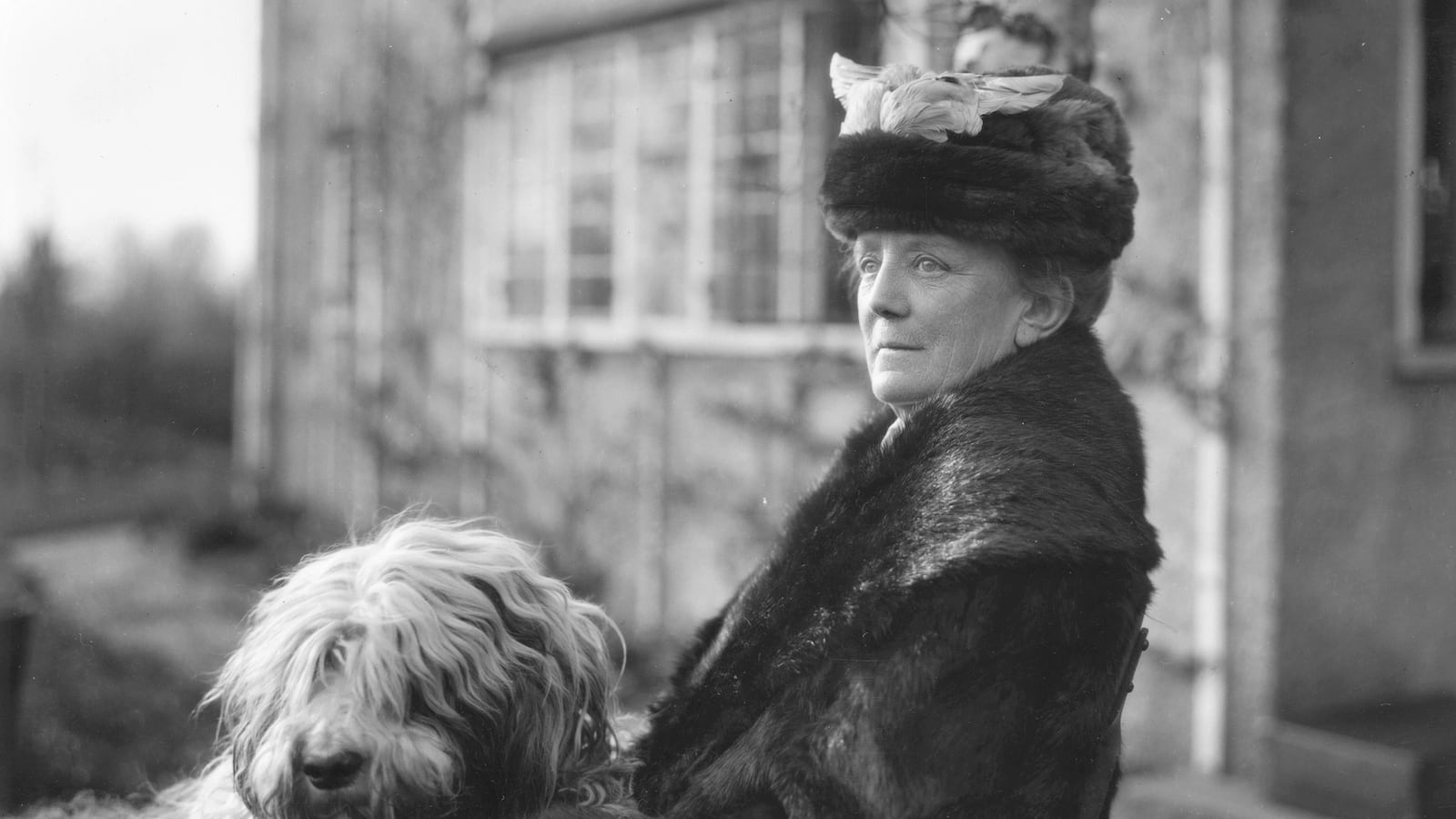In March 1912, composer, lesbian and militant suffragette Ethel Smyth stood clutching her handbag in front of the Berkeley Square home of the colonial secretary, Lewis Harcourt, in London.
“Oh constable,” she politely asked the policeman on guard duty, “perhaps you could tell me who lives at this address?”
She then removed a rock from her handbag and smashed it through the front window of the residence.
She was promptly, and quite politely as she tells it, arrested.
As well as her activism, Smyth was also one of the most well-known female composers in the world, having had her one-act opera, Der Wald, produced at the Metropolitan Opera in 1903, making her the first, and to this day only, female composer ever to have an opera staged at the Met.
Now Leon Botstein, president of Bard College—and musical director and principal conductor of the American Symphony Orchestra, which specializes in reviving overlooked or underperformed works—and Bard SummerScape will present the first U.S. staged performances of Smyth’s 1906 opera, The Wreckers, beginning today, July 24, through August 2.
In addition to Der Wald, Smyth composed six operas, numerous chamber, orchestral and piano pieces and in 1910 wrote “The March of the Women,” which became the anthem for the militant suffragist movement.
The vandalism Smyth took part in that day in 1912 was in retaliation for a public comment by Harcourt that if all women were as “pretty and wise” as his own wife, they would have the vote tomorrow.
It was also part of a city-wide window smashing campaign devised by Emmeline Pankhurst, co-founder with her daughter Christabel of the Women’s Social and Political Union.
The Pankhursts had founded the WSPU in 1903 as a militant alternative to the National Union of Women’s Suffrage Societies, whom they felt had been far too passive in their efforts to secure the vote for women.
“Deeds, not words” became the WSPU’s slogan, and true to their word they engaged not only in window-breaking campaigns and organized vandalism—one member of the WSPU even successfully attacked and nearly destroyed a Diego Velázquez painting of Venus in the National Gallery in London with a meat cleaver in 1914—but also hunger strikes, arson, and bombings, including unsuccessful bombing attempts on Westminster Abbey and the Bank of England.
There were also kidnapping threats against Cabinet ministers that were taken so seriously the ministers hired private detectives for protection.
Over 100 women were arrested that day in March 1912, along with Ethel Smyth, for window breaking across London. Smyth herself was sentenced to two months in jail for her part.
During her jail sentence she was visited by famed English conductor Sir Thomas Beecham, one of the few early supporters of her work in the male-dominated English classical music scene.
He witnessed Smyth conducting a group of fellow imprisoned suffragists marching in the prison courtyard singing ‘The March of the Women’ while she “beat time in almost bacchic frenzy with a toothbrush.”
Smyth was rumored to have had affairs with many prominent women, including Emmeline Pankhurst, the co-founder of the WSPU, and Virginia Woolf, who described being the object of the far older Smyth’s affections as “like being caught by a giant crab.”
Smyth did have at least one affair with a man, Henry Brewster, her longtime collaborator and the librettist for The Wreckers.
Their artistic and personal collaboration was tumultuous, and after the premiere in Leipzig in 1906 of The Wreckers, a work she had spent years trying to get produced, Smyth was so dismayed over the cuts to the score by the conductor that she stole the scores from the orchestra pit and caught a train to Prague.
This ensured the orchestra could not play it again, regardless of the audience’s very positive and enthusiastic reception to it the night before, and did little to ingratiate her to the powers that were in the classical music world, already skewed against her for being female and very outspoken.
Smyth got the idea for The Wreckers while vacationing in Cornwall in 1886.
She heard stories of the starving local villages in the 1700s who would extinguish the lighthouse beacons on the coast in order to lure ships into wrecking on the rocks and then would plunder the cargo and, often, kill any surviving sailors, believing that the wrecks were a gift from God and their plunder an act of religious devotion.
Botstein told The Daily Beast, “The Wreckers is an extremely well written, very powerful piece with one hell of a powerful story. Smyth wrote an opera that is squarely political, and its political message couldn’t be more important than it is today.”
Smyth, Botstein added, decided to choose a story which was not a thinly veiled political metaphor. “The story is of a religious fanatical community. It’s a very prescient story… [T]his religious community that believes itself to be the messengers of God is entitled to kill and plunder without consequence… So exactly what the anti-abortion bombers and killers are, what the ISIS killers are, these are people who believe they are carrying the flag of the true god, and they are able to violate every canon of human ethics. “
For Botstein, who will conduct the performances with the American Symphony Orchestra, Smyth’s activism, perspective and message still have much to impart to today’s audiences.
“Nothing could be more relevant: intolerance based in religion, and intolerance of a mass society and a majority against dissenters—those people who don’t toe a party line and don’t think according to script determined by the majority and intolerance of the majority and its cruelty and its moralizing self-importance. [Smyth] puts this onstage and she foregrounds the rebels and brings the audience into sympathy with them. She pillories the conceits of Christianity and of religion. What a better topic for an opera? No sentimental claptrap here.”
The Wreckers is playing at The Fisher Center for the Performing Arts at Bard College (Annandale-on-Hudson, NY) July 24, 26, 29, 31 and August 2.






